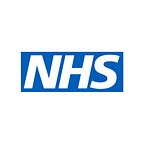A vaccine saga
Immunisation is important across the life course, from the very young to the very old. Dr B Sathyajith, a GP in Newham, explains why vaccinations save lives.
“It is every parent’s obligation to take their child to their family doctor for vaccinations against life threatening, vaccine preventable diseases. Every child has the right to have vaccinations provided by the NHS. They are just as essential as food, water and shelter.
The safety and efficacy of every vaccine that is offered has been proven by numerous evidence based studies.
Imagine a scenario: Lola, a mother, takes her daughter Sarah to play in the park, it’s a bright spring day, just like any other. Suddenly, Sarah falls to the ground and starts shaking violently.
Paramedics arrive and swiftly take her to hospital where a doctor must explain that the young girl is now in the intensive care unit battling against deadly Meningitis. The child’s arms and legs are black, her body covered in spots, the team struggle to keep her temperature down. Even if Sarah survived this emergency, she would have to live without arms and legs, which have to be amputated.
This is the worst nightmare of every parent, child and health professional. We all have a duty to protect our next generation.
The mother’s responsibility starts when she is aware of her pregnancy. After her 20 weeks scan, she will be offered Pertusis vaccine (this protects against Whooping cough). Babies and young children will then be offered the below:
· 8 weeks: Diphtheria, Tetanus, Pertusis ( whooping cough), Polio, Haemophilis influenza B (DTAP/IPV/ Hib), Pneumococcal (PCV), Meningococcus (Men B), Rotavirus.
· 12 weeks: Boosters for DTAP/ IPV/Hib and Rotavirus to reinforce immune system.
· 16 weeks: DTAP/IPV/Hib, Men B, PCV to toughen the immune system further.
· 1 year: Measles, Mumps and Rubella (MMR), Hib/MenC, PCV, MenB.
· 3 years and 4 months: DTAP/IPV, MMR.
In addition to the above vaccines seasonal Influenza (flu) vaccines are offered to children aged between 2 and 7 years every winter (September till January). Girls aged 12 to 13 years are offered Human Papilloma Virus (HPV) vaccine to protect against cervical cancer. And at 14 years old, all secondary school aged children are offered Meningococcal ACWY vaccine, as well as a booster of Tetanus, Diphtheria and Polio (Td/IPV).
As a child continues their journey into adulthood, the baton of responsibility is passed to them.
They should ensure their vaccinations are up to date and may one day need to protect themselves and their own children with the vaccinations as detailed above.
When they cruise above the age of 65 years, a booster of Pneumococcal (PCV) is required along with yearly seasonal Influenza vaccine during winter (offered between September and January).
By protecting ourselves, we also protect others.
If we are successful in getting over 95% of our children vaccinated, the population gets protected by “Herd immunity”, a term used to describe the resistance to the spread of contagious diseases within a population.
Your family doctor and the hospital team may offer you other vaccinations under the selective immunisation programme if your circumstances are exceptional.
Next time you get advice from your family doctors or their team, or a letter gently reminding you to book an appointment for vaccinating your child, please understand that we have your family’s best interest at heart, from cradle to grave. We are committed to providing you with the best healthcare which is based on solid foundation of evidence based medicine.
